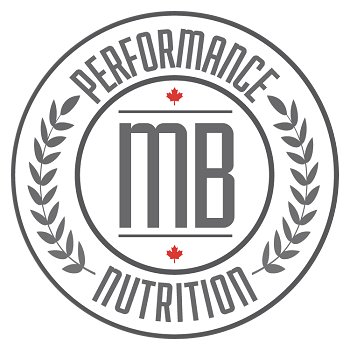Last updated on January 11th, 2024
I want to preface this by mentioning that there’s no miracle foods you can eat the week of your race that are going to erase months (or a lifetime) of poor eating choices. Also, changing your diet the week of a race is likely not a good idea in general.
With that being said, your diet before a race will have a big impact on your performance and could provide you with a competitive edge (or at the very least, be the difference between barely surviving the race or thriving).
There are a few things to consider when it comes to your nutrition the week before a race. Namely, how long is the race, are you tapering for the race and / or are you carbohydrate loading? Regardless of the type of event you are doing, your two main goals the week before a race are to fill your muscle and liver glycogen stores (AKA, stored carbohydrates) and to keep well hydrated.
Carbs the Week Before Your Race
If you are an obstacle course race athlete that competes every single weekend, it’s not possible to taper prior to each race. You would end up with no training time. You might, however, perform lower intensity training or technical training during the 2 days before you race and save the tapering for your “A” (most important) races.
For extra credit: The minimum time it takes to refill muscle glycogen stores is 20 hours. Which means, if you’re racing back-to-back days and not paying close attention to your nutrition, you are likely not starting your second race with a full supply of fuel in the tank. After prolonged and exhaustive exercise that involves eccentric exercise (think Beast or longer), it may take as long as 7-10 days! Keep that in mind while planning out your race schedule.
For races lasting less than 90 minutes, you do not need to carb load, but you will want to maintain your carbohydrate intake. If you are going to be training right up until your race, it’s very important that you pay attention to maintaining or slightly increasing your carbohydrate intake so you can show up on race day with a full supply of muscle and liver glycogen stores.
For races lasting more than 90 minutes, you may benefit from carb loading. But this will ultimately depend on your training / taper schedule and what your specific goals are. If you are going to carb load, the basic principle is to consume a moderate intake for the first 3 days of the week, followed by a high intake for the final 36-48 hours.
By the way, carb loading doesn’t mean a fast food or junk food free-for-all either. Your total calorie intake should remain about the same as usual during the week before your race.
So, if you’re increasing the amount of carbohydrate-rich foods you are eating, you are decreasing the amount of fats and proteins.
In fact, in some taper situations, you may need to reduce your overall calories slightly to match your reduced training load, so you don’t gain weight leading up to your race. In this case, you’ll further reduce your fat intake.
Your food choices in the 36-48 hours prior to your race should be high in carbohydrate and moderate in protein, while low in fat and fibre to reduce your risk of gastrointestinal problems come race day. Which is another reason to avoid the fast food or junk food right before a race.
Hydration the Week Before Your Race
A common trend I see with obstacle course race athletes is a panic to get hydrated the week leading up to a race. Far too often I hear athletes recommending guzzling litres and litres of water or Pedialyte.
Overhydration is a real and scary thing. And even if you’re drinking electrolytes, sports drinks or Pedialyte as you’re guzzling all this water thinking you’re keeping your fluids balanced, you’re likely not.
Pay attention to your hydration status on a regular basis, so you don’t need to worry about it 48 hours before your race.
Basically, when you pee, it should be a pale-yellow colour. This means you are probably well hydrated and can continue to drink according to thirst. If it’s clear you are over-hydrated. If it’s a dark yellow or verging into a shade of brown (like apple juice or beer) you are likely dehydrated and need to drink water as soon as you can.
What to do Next
If you’re racing this week:
- Rehydrate fully after your training sessions. You can check your hydration status by monitoring the colour of your urine.
- Don’t try anything new the week leading up to your race.
- If possible, bring prepared food with you and don’t rely on restaurants or whatever food might be available at the venue
References:
Coyle, E.F. (1991), ‘Timing and method of increased carbohydrate intake to cope with heavy training, competition and recovery.’ J. Sports Sci., vol. 9 (suppl), pp. 29-52.
LINK: https://www.precisionnutrition.com/nutrition-for-seniors


